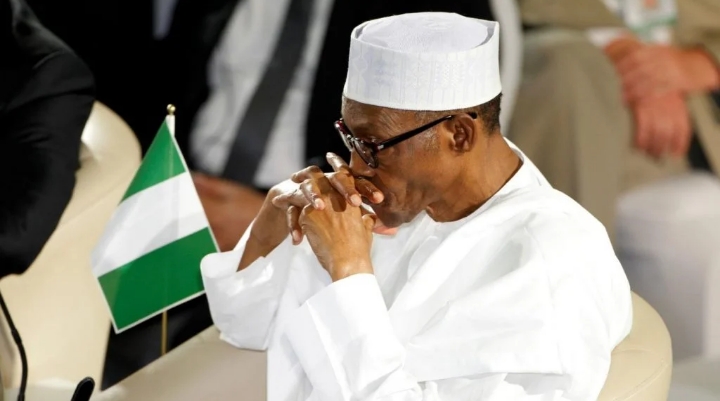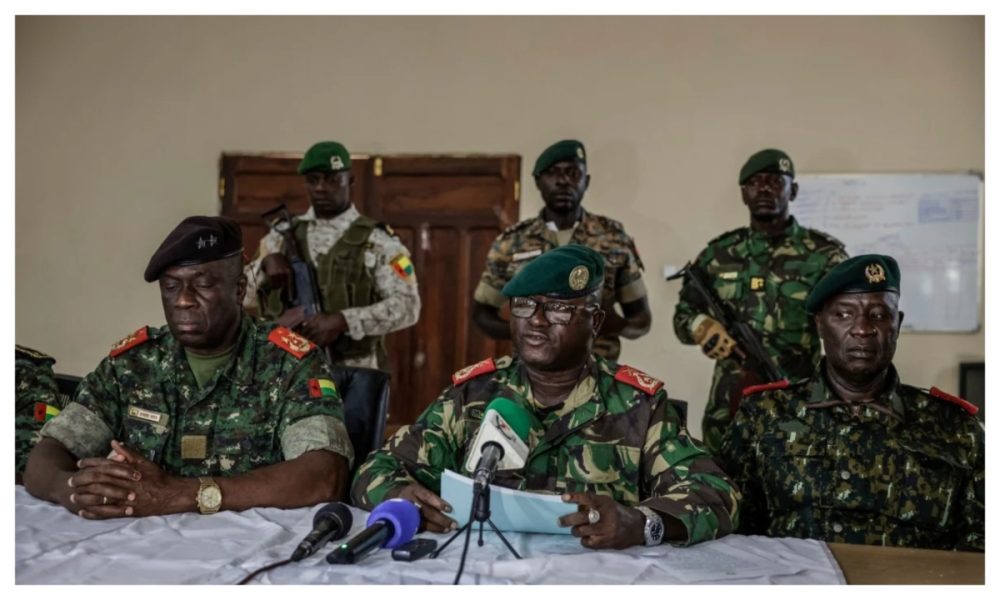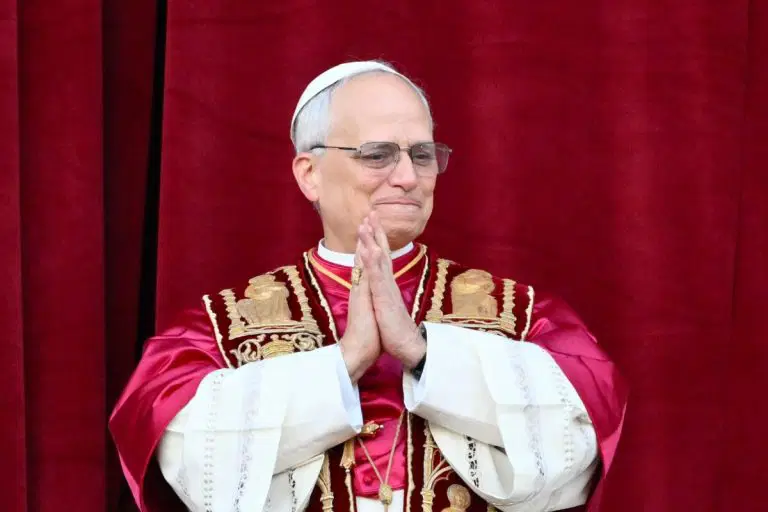Headline
COVID-19: FG Spends N104bn On Handwashing, Youth Programmes

The Federal Government through the Ministry of Water Resources got N9.9bn from the N2.3tn COVID-19 intervention fund to implement the ‘wash programme’ which involves water sanitation and health projects.
This is just as N94bn was disbursed for youth empowerment and job creation.
These details were revealed by the Federal Ministry of Finance, Budget and National Planning in response to a Freedom of Information request sent to the ministry by human rights lawyer, Mr Femi Falana (SAN).
The document titled, ‘Re: Request for Information on Utilisation of the Sum of N1.5tn Spent by the Federal Government of Nigeria on Managing the Effect of COVID-19,’ was signed by the Director, National Monitoring and Evaluation at the ministry, Dr Zakari Lawal.
The document obtained by The PUNCH correspondent showed that in June 2020, the Federal Executive Council approved a N2.3tn stimulus plan proposed in the Nigeria Economic Sustainability Plan designed to support the nation’s economy to mitigate the challenges of the COVID-19 pandemic.
N500bn was to be disbursed to ministries, departments and agencies, while the balance was to be disbursed to the private sector by the Central Bank of Nigeria.
The document showed that out of the N2.3tn, about N1.9tn had been disbursed.
READ ALSO: Alleged Sponors Of Terrorism: FG Replies US-based Organistion
While N94bn was released for youth engagement and job creation, health equipment and related issues gulped N128.5bn.
The Ministry of Youth and Sport Development got N690m to train 150 youths to become agro-technicians and 150 youths to become solar technicians.
The ministry also got N2bn to train 1,600 youths to become digital professionals and N1.1bn to provide 2,700 youths with work experience.
The sum of N1.5bn was released to the ministry to build six ICT centres in Kano, Bauchi, Plateau, Anambra, Cross River, Osun and 24 vocational centres nationwide.
The international Centre for Women Development, under the Ministry Of Women Affairs, got N250m for a job creation scheme post-COVID-19. It also got N1bn for job creation scheme post-COVID-19: Equipment for vocational skills training in the six geopolitical zones.
The Ministry Of Communications and Digital Economy received N1bn for job creation scheme post-COVID-19: Entrepreneurship and vocational training in the six geopolitical zones to support digital skills gaps and provision of subsidised training for qualified candidates across the country.
The Federal Government also released N2bn to the communications ministry for the job creation scheme post-COVID-19: Establishment of centres of excellence and labs for robotic, 3-D printing, IoT, big data analytics and block chain.
The National Directorate of Employment got N52bn to engage youths and for business training.
The Ministry of Humanitarian Affairs, Disaster Management, and Social Development was given N32.5bn to provide a social intervention programme.
The Ministry of Health got N1bn for surveillance and epidemiology; N10.2bn for laboratory; N310.4m for point of entry; N133.6m for infection prevention and control; N1.8bn for case management; N89m for health-related communication; and N75m for research and development.
It also got N6.5bn for NCDC, N10bn to support Lagos State, 1bn to support pharmaceutical industries for raw materials not used, N20bn for hazard allowance, N2.5bn for contingencies, N10bn for food and drug services and local production of vaccines.
READ ALSO: Invasion Of Justice Odili’s Home: SERAP Petitions UN, Calls For Thorough Investigation
As an extension of the support provided to health care in the country, the sum of N18.4bn was disbursed across 52 federal teaching hospitals and federal medical centres to equip 10-bedded intensive care units.
The 52 health centres received N5.2bn to equip isolation treatment centres; N7.8bn to procure personal protective equipment for all federal tertiary health institutions; and N18bn to procure molecular laboratory equipment.
The sum of N2b each was released for reagents and equipment for COVID-19 related laboratory services to the national agency for food and drug administration, Nigerian institute of medical research, national institute for pharmaceutical research and development, and Nigeria centre for disease control.
The National Agency for Food and Drug Control also got another N2bn to upgrade laboratory testing of vaccines.
Meanwhile, the Nigerian Institute of Medical Research got N1bn for an upgrade of laboratory equipment, the National Institute for Pharmaceutical Research and Development got another N2bn for research and development.
The Federal Fire Service received N1.5bn for provision of COVID-19 kits and other medical equipment, the national correctional service got N951.1m for rehabilitation, provision, and maintenance of health facilities and correctional services revamps in six geopolitical zones.
While the public sector received about 490bn, the private sector got about 1.4tn.
The Ministry Of Finance, Budget, And National Planning got N750m for monitoring and evaluating the Economic Sustainability Plan and N36bn as measures to support states.
While the National Commission For Refugee Migrants and Internally Displaced Persons for N2.5bn, the office of the Secretary to the Government of the Federation got N250m to support the activities of the economic sustainability committee.
The Nigeria Police Force and Nigerian Air Force received N10bn and N2.7bn, respectively, as support for their operations.
The Ministry of Agriculture and Rural Development got about N56.5bn. From the total, N17.2bn was for the payment of five per cent interest on CBN loan to farmers; N27bn was for farmer/farm registration and mapping 50 per cent sampling; about N2.5bn was for land preparation; and 34bn for rural roads in the six geopolitical zones.
The Rural Electricity Agency got N12.4bn, which was used for mass rural electrification and solar power strategy.
The Federal Ministry of Industry, Trade, And Investment got N75bn to support small businesses.
While the Federal Road Maintenance Agency got N60bn to repair roads, the Nigeria Security and Civil Defence corps got N539.7m.
The Ministry Of Mines And Steel Development got N6bn for artisanal and small-scale miners.
The Ministry Of Aviation received N5bn as bailout support to the aviation sector.
In the private sector, some MDAs were in charge of coordinating the funding support to the private sector. For instance, the federal Ministry Of Agriculture And Rural Development for N471.7bn for interest-free loans to farmers under the agriculture jobs and food programmes.
READ ALSO: Threats To Nigeria’s Corporate Existence unprecedented, Osinbajo Laments
N200bn was given to the family homes fund for jobs through homes programmes.
While the Federal Mortgage Bank of Nigeria was given N40bn, the federal housing authority got N26bn to construct homes.
The Ministry Of Power through REA got N140bn for energy for all solar power strategies.
The Ministry Of Petroleum Resources got N90bn for the national gas expansion programme.
The Ministry Of Trade, through the Bank of Industry got N250bn to support MSMEs.
The Ministry of Humanitarian Affairs, Disaster Management, and social development got N47bn for NP: skills and entrepreneurship, while the Finance Ministry got N72.9bn to support health systems.
Headline
Coup: Guinea-Bissau Junta Releases Six Held Opposition Politicians

Guinea-Bissau’s ruling junta on Tuesday released six members of the political opposition who had been detained since a coup last month.
The six freed opposition members are said to be close associates of Domingos Simoes Pereira, head of the PAIGC party that led the country to independence in 1974.
Pereira has been in custody since the coup.
In a statement by the High Military Command, the junta’s governing body, the releases are described as a sign of good faith and a step towards the return to constitutional normality and respect for international rights.
READ ALSO:Why West African Troops Overturned Benin’s Coup But Watched Others Pass
The army seized power on 26 November after ousting outgoing President Umaro Sissoco Embalo in the wake of a presidential vote.
After taking over, the military suspended the electoral process and announced it would take control of the West African country for a period of one year.
Recall that another opposition candidate, Fernando Dias, took refuge in Nigeria’s embassy, which granted him asylum, while Embalo fled the country after being briefly detained by the military at the time of the coup.
Meanwhile, Senegal’s Foreign Minister, Cheikh Niang, led a delegation to Guinea-Bissau, where he met with detained opponents and requested their release.
Headline
7 Territories Still Under Colonial Rule

Even though most nations became independent in the last century, some territories are still ruled by other nations.
Contents
1. Western Sahara
2. Guam
3. American Samoa
4. United States Virgin Islands
5. Falkland Islands / Malvinas
6. Gibraltar
7. Bermuda
Many of them remain on the United Nations list of non-self-governing territories, meaning they have not completed the process of decolonization. These places usually depend on bigger countries for laws, passports, defence, or political control.
In this article, Nigerian Tribune highlights 7 territories still under colonial rule:
READ ALSO:Nigeria Ranks World’s 102nd Happiest Nation, US, Germany Not Among 20 Top Counties
1. Western Sahara
Western Sahara remains one of the world’s biggest unresolved colonial issues. Morocco controls most of the territory, but the Polisario Front wants independence for the Sahrawi people. The UN is still trying to help both sides agree on a peaceful solution.
2. Guam
Guam is an important US territory in the Pacific, used heavily for American military operations. The US oversees its defence and foreign relations.
People living there are US citizens, but they cannot vote in presidential elections and do not have full representation in Congress.
READ ALSO:FULL LIST: US To Review Green Cards From 19 ‘Countries Of Concern’ After Washington Shooting
3. American Samoa
American Samoa has more local control than Guam, but the United States still decides immigration, defence, and foreign affairs.
Residents are considered US nationals and must apply if they want full citizenship.
4. United States Virgin Islands
The US Virgin Islands have their own legislature, but the United States makes major constitutional and political decisions. The territory depends heavily on US federal support.
5. Falkland Islands / Malvinas
The Falkland Islands remain controlled by the United Kingdom (UK), but Argentina has long disputed this claim, having been in control of the Islands for a few years before 1833.
The people living there voted strongly to stay British, yet the sovereignty dispute continues to appear in the UN.
READ ALSO:Six Countries With Highest Number Of Billionaires In 2025
6. Gibraltar
Gibraltar sits at the Southern tip of Spain. The United Kingdom controls it, but Spain insists the territory belongs to them.
Gibraltarians have repeatedly voted in favour of remaining British, but the dispute is still discussed within the UN Decolonisation Committee.
7. Bermuda
Bermuda is a British Overseas Territory situated in the North Atlantic Ocean. Although it manages most of its own internal affairs and enjoys a strong economy with modern facilities, the United Kingdom still handles its defence and represents it in global matters.
Headline
Russia-Ukraine War: Pope Leo Calls For Global Christmas Truce

Pope Leo XIV on Tuesday renewed his call for a global truce on Christmas Day, saying he felt “great sadness” after Russia “apparently rejected a request” for a pause in fighting.
Speaking to reporters at his residence in Castel Gandolfo near Rome, the Pope urged all sides involved in conflict to observe at least one day of peace.
“I am renewing my request to all people of goodwill to respect a day of peace — at least on the feast of the birth of our Saviour,” Leo said.
Recall that Russia invaded Ukraine in February 2022 and has repeatedly turned down calls for a ceasefire, arguing that any pause would give Ukraine a military advantage.
READ ALSO:Russian Strikes Kill Five In Ukraine, Cause Power Outages
“Among the things that cause me great sadness is the fact that Russia has apparently rejected a request for a truce,” the pope said.
Referring to conflicts worldwide, Leo added, “I hope they will listen and there will be 24 hours of peace in the whole world.”
The appeal came as fighting continued in eastern Ukraine. On Tuesday, Ukrainian forces withdrew from a town after heavy battles with Russian troops. Russian strikes killed three civilians and left thousands without power during winter temperatures.
READ ALSO:Trump Blasts Ukraine For ‘Zero Gratitude’ Amid Talks To Halt War
There was no indication of progress toward ending the war after separate meetings last weekend in Miami between the United States officials and negotiators from Russia and Ukraine. The conflict is nearing four years with no settlement in sight.
Earlier this month, Pope Leo met Ukrainian President Volodymyr Zelensky. When asked whether he would accept Zelensky’s invitation to visit Ukraine, the pope said, “I hope so,” while noting that it was not possible to say when such a visit could happen.
Leo also warned that efforts to secure peace without European diplomatic involvement were “unrealistic”, expressing optimism that President Donald Trump’s proposed peace plan could bring a “huge change” to the transatlantic alliance.

 News2 days ago
News2 days agoPHOTOS: New Era In Furupagha-Ebijaw As Okpururu 1 Receives Staff Of Office

 Metro5 days ago
Metro5 days agoJUST IN: Former Edo Information Commissioner Is Dead

 News2 days ago
News2 days agoUBTH CMD Marks 120 Days In Office, Expresses Commitment To Providing Conducive Working Environment

 News2 days ago
News2 days agoFG Declares Public Holidays For Christmas, New Year Celebrations

 News5 days ago
News5 days agoCoordinator, Edo First Lady Office, Majority Leader, Rights Lawyer, Others Bag 2025 Leadership Award

 Metro5 days ago
Metro5 days agoShe Grabs, Pulls My Manhood Anytime We Fight — Husband

 News2 days ago
News2 days agoOPINION: Gumi And His Terrorists

 News2 days ago
News2 days agoFIRS Confirms NIN As Tax ID

 Metro5 days ago
Metro5 days agoWhy I Charged My Husband Money For Sex —Woman

 News5 days ago
News5 days agoMy Wife Dented My Image, Took Our Marital Crises To Radio Stations — Husband
































